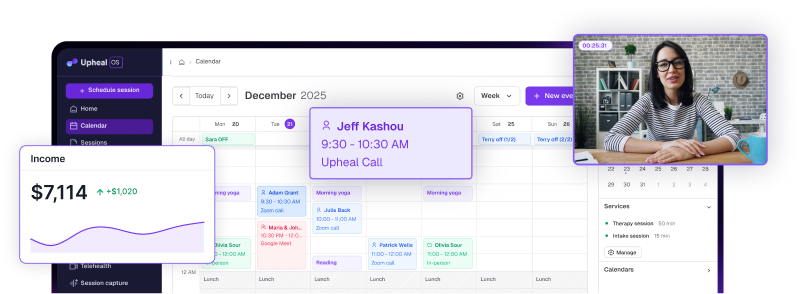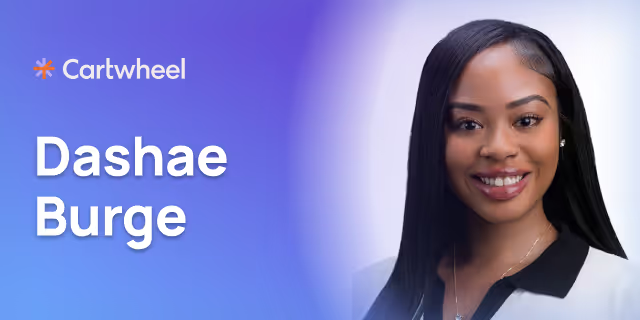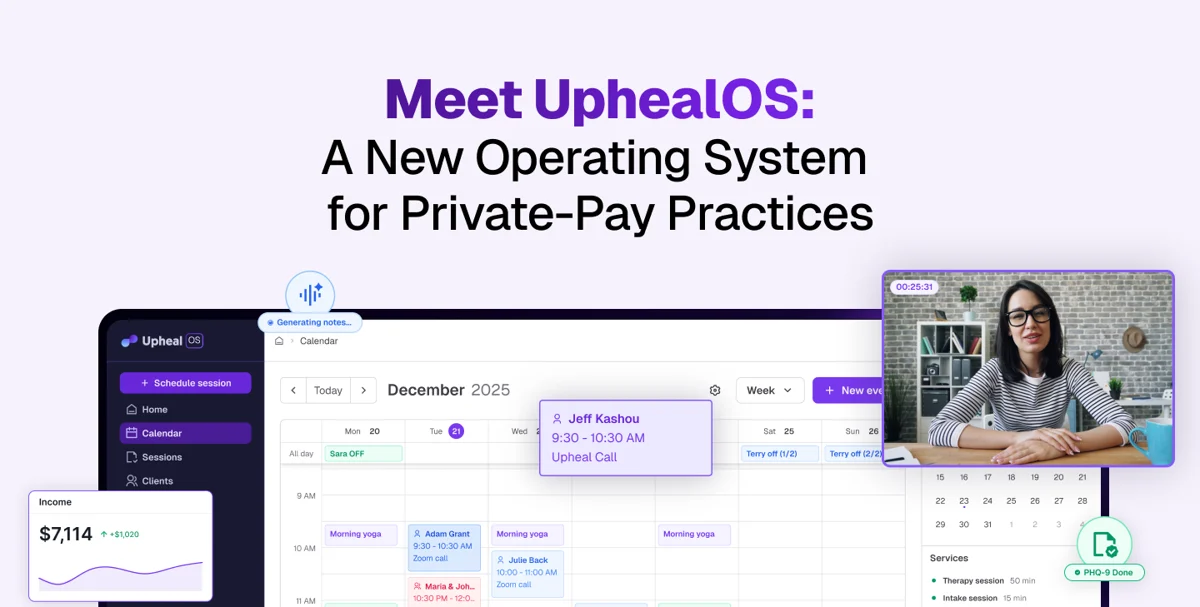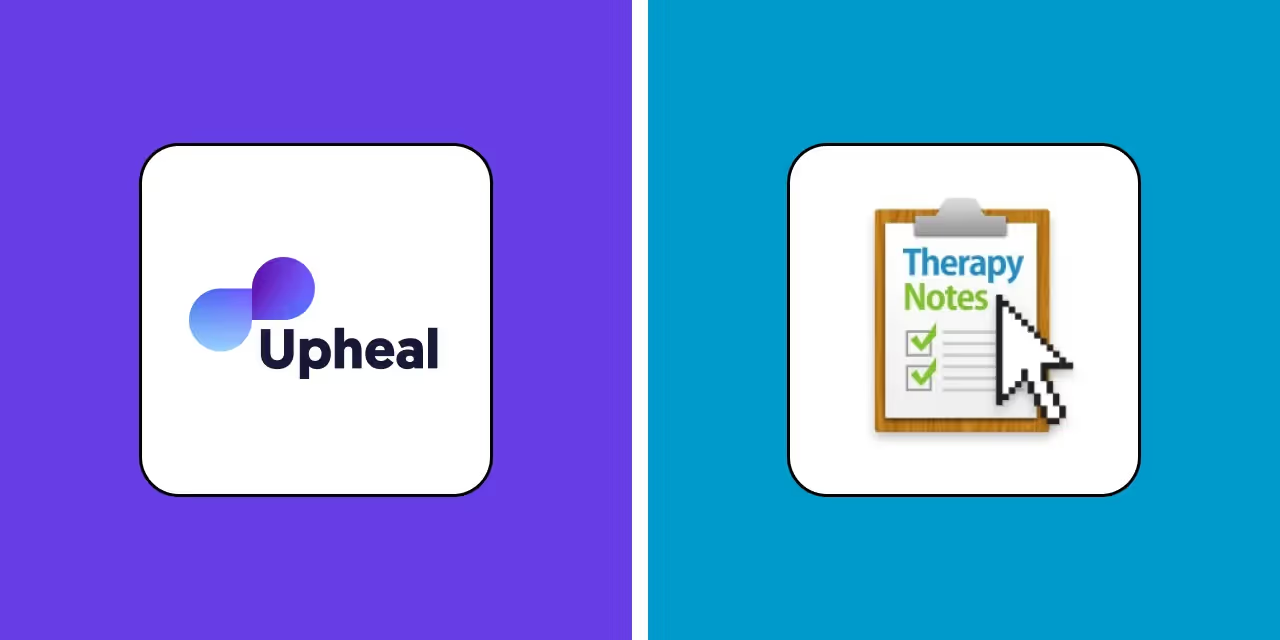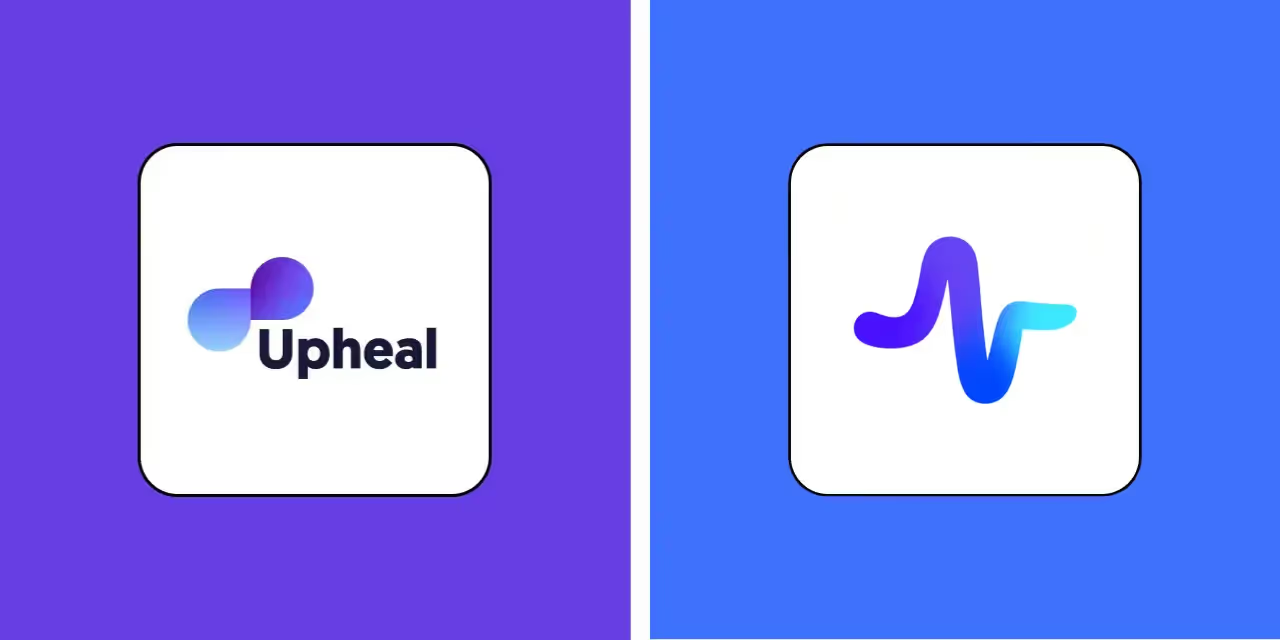Upheal vs Nabla: Medical AI scribe vs purpose-built therapy platform
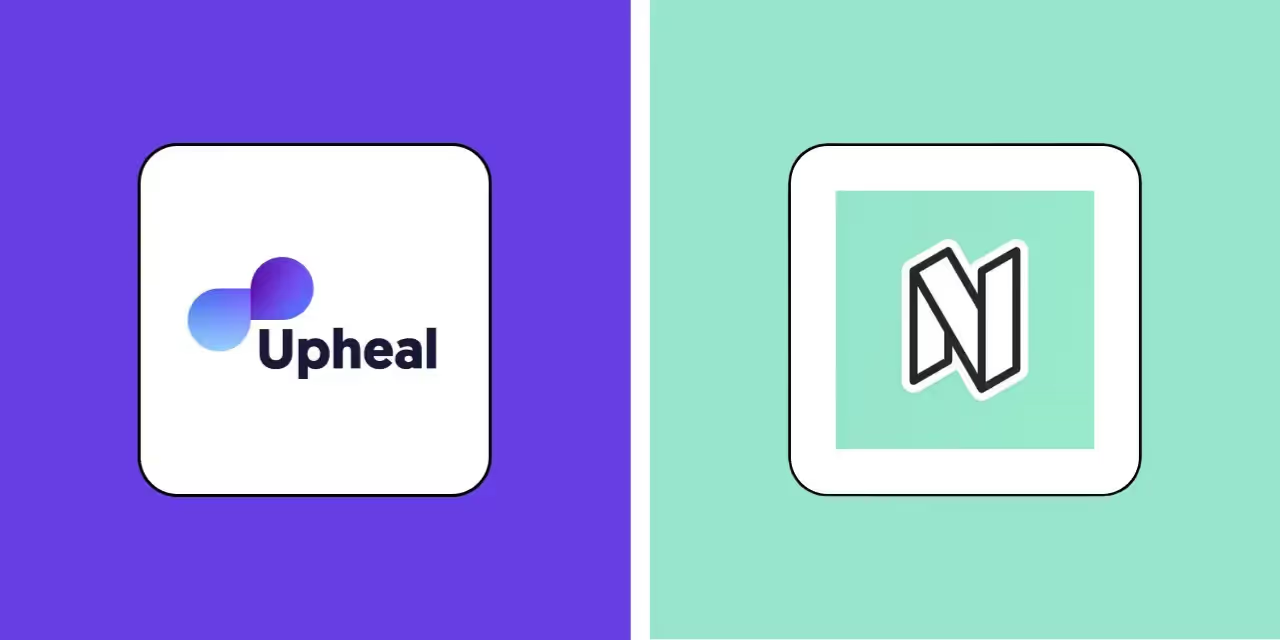
When therapists explore AI documentation tools, the choice often comes down to adapting general medical solutions versus adopting purpose-built platforms. It's the difference between using a Swiss Army knife and selecting a precision instrument designed specifically for your craft.
Nabla represents the medical AI approach — an ambient scribe built for physicians that happens to work with therapy sessions.
Upheal takes a fundamentally different path, offering AI tools purpose-built for mental health practice from the ground up.
Both platforms promise to reduce documentation burden, but their approaches to therapeutic work, privacy, and clinical insight reveal dramatically different philosophies about what mental health professionals actually need from AI assistance.
Privacy and ethics: The therapeutic trust differentiator
The most significant distinction between these platforms lies in their fundamental approach to client data and consent — areas where mental health professionals rightfully demand the highest standards.
Data training and consent
Upheal requires explicit opt-in consent from both therapist and client before any session data is used for AI model training. This consent-first approach means your clients' most vulnerable disclosures are never used to improve the system unless everyone has made an active, informed choice to participate.
Nabla operates differently, using client data to train their AI models by default without explicit client notification. While they describe anonymization processes, this approach transforms therapeutic exchanges into training data without the transparent consent that therapeutic relationships require.
Recording deletion policies
Upheal deletes all audio recordings by default after processing, reducing the risk of stored sensitive content being accessed inappropriately. Therapists can choose to retain recordings for supervision or professional development, providing complete control over data retention.
Nabla does not store user data on their servers, with only the past 20 consultations cached locally on devices. This approach provides strong security but may not suit therapists who want to review sessions for professional development or supervision.
Feature differences between Upheal and Nabla
Beyond privacy, both platforms offer AI-powered documentation — but their feature sets reveal fundamentally different philosophies about what mental health professionals need from technology partners.
Flexible input methods vs ambient-only capture
Upheal supports multiple documentation approaches — therapists can generate comprehensive notes from brief written summaries, dictated overviews, or session recordings. This flexibility means never being forced to record sensitive conversations if that doesn't align with practice style or client comfort levels.
Nabla requires real-time audio capture during sessions to function effectively. While this ambient approach works well in medical settings, some therapeutic relationships and approaches work better without recording technology present in the room.
Treatment planning and Golden Thread integration
Upheal's Golden Thread feature represents a fundamental reimagining of treatment planning that creates client-centered narratives integrating all components of care. This system links interventions directly to treatment goals, tracks progress over time, and ensures every session builds meaningfully toward therapeutic outcomes.
Nabla operates as a documentation tool without treatment planning capabilities. The platform focuses exclusively on converting conversations into structured notes, missing the therapeutic integration that supports clinical continuity and outcome measurement.
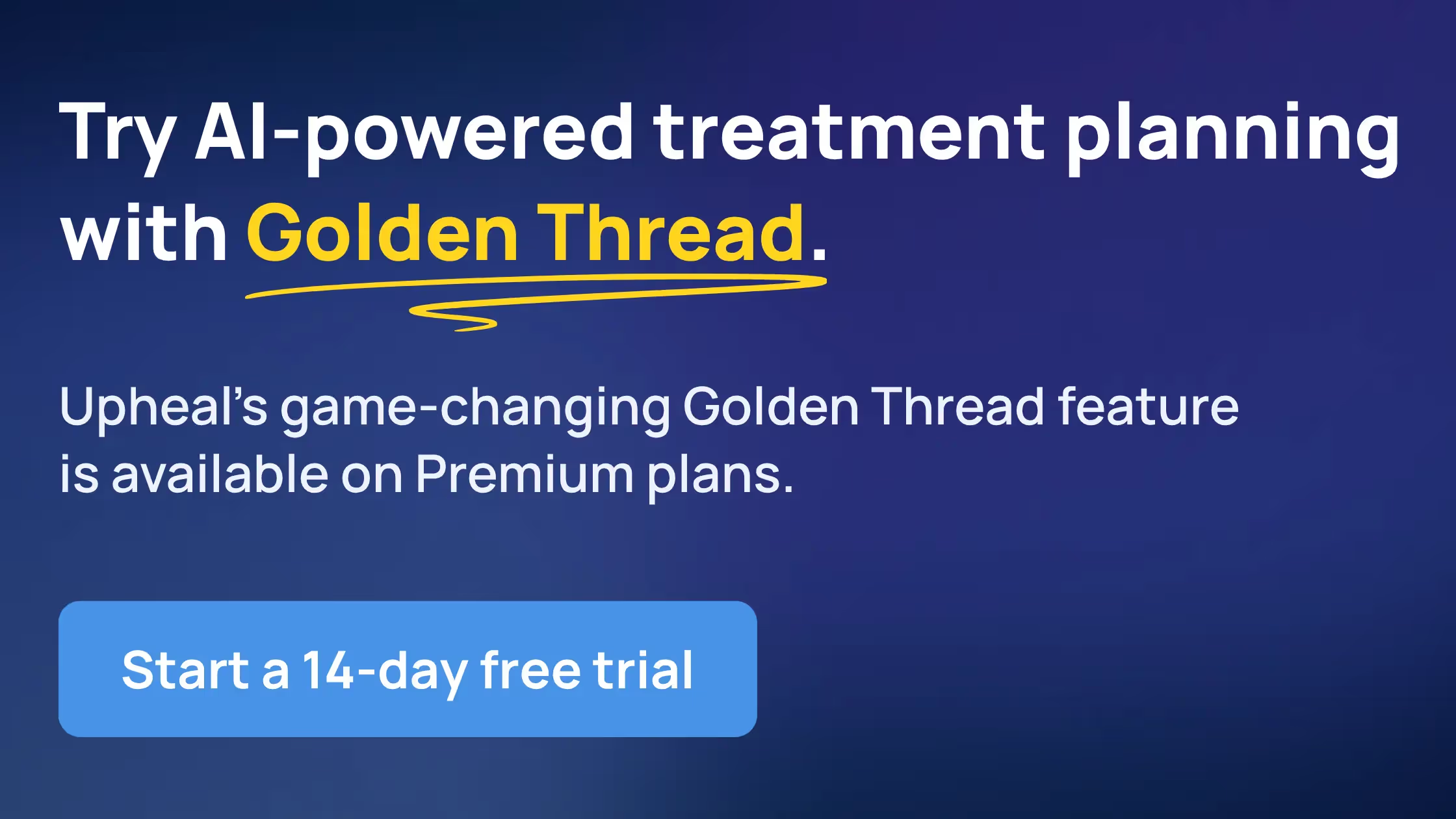
What therapists think about these platforms
The therapeutic community's response reveals telling insights about what practitioners truly value when choosing AI documentation tools.
Therapists using Nabla appreciate its efficiency but note limitations for specialized mental health work:
"I like Nabla, however it turns to be quite verbose and I have to correct random spellings etc. It does allow me to listen to the patients better so I'm not worried about writing things down."
The platform's medical orientation sometimes creates friction for therapy-specific workflows:
"I haven't used NABLA yet, but as a therapist, I'm curious how it might fit into longer intake sessions or progress notes. I'm all for tools that cut down charting time, but like you said, if it's just asking basic symptom checks, I'm not sure it adds much."
Upheal's specialized approach resonates with mental health professionals who understand the value of purpose-built tools:
"Between the four tools currently available to help private practice therapists streamline their documentation — AutoNotes, Blueprint, Mentalyc, and Upheal — Upheal comes out as the winner in terms of easing the burden of documentation and providing additional session insights that may be helpful for the therapist."
Hannah Weisman, PhD
The emphasis on clinical sophistication matters deeply to practitioners seeking both efficiency and professional growth.
Choosing the right platform for your practice
The decision between Nabla and Upheal ultimately reflects your vision of how AI should support therapeutic work. Both platforms can help with documentation, but they serve different practice contexts and professional priorities.
Choose Nabla if you:
- Want a proven medical AI scribe with broad healthcare adoption
- Primarily need basic session transcription and note generation
- Are comfortable with standard healthcare data practices
- Work in integrated medical settings where consistency with physician workflows matters
Choose Upheal if you:
- Want AI designed specifically for mental health practice
- Value explicit consent models and transparent privacy practices
- Need treatment planning integration and therapeutic analytics
- Seek professional development insights alongside documentation efficiency
- Want flexible session capture options beyond ambient recording
For most mental health professionals, Upheal's purpose-built approach offers superior value across the dimensions that matter most. The platform's specialization in behavioral health, commitment to explicit consent, and sophisticated clinical features create a foundation for ethical AI adoption that serves both immediate efficiency needs and long-term professional development.
Nabla serves the medical AI market effectively, but mental health practice requires tools that understand the unique nature of therapeutic relationships. When your documentation platform comprehends therapy as deeply as you do, the result isn't just faster notes — it's enhanced clinical insight that supports better care.
